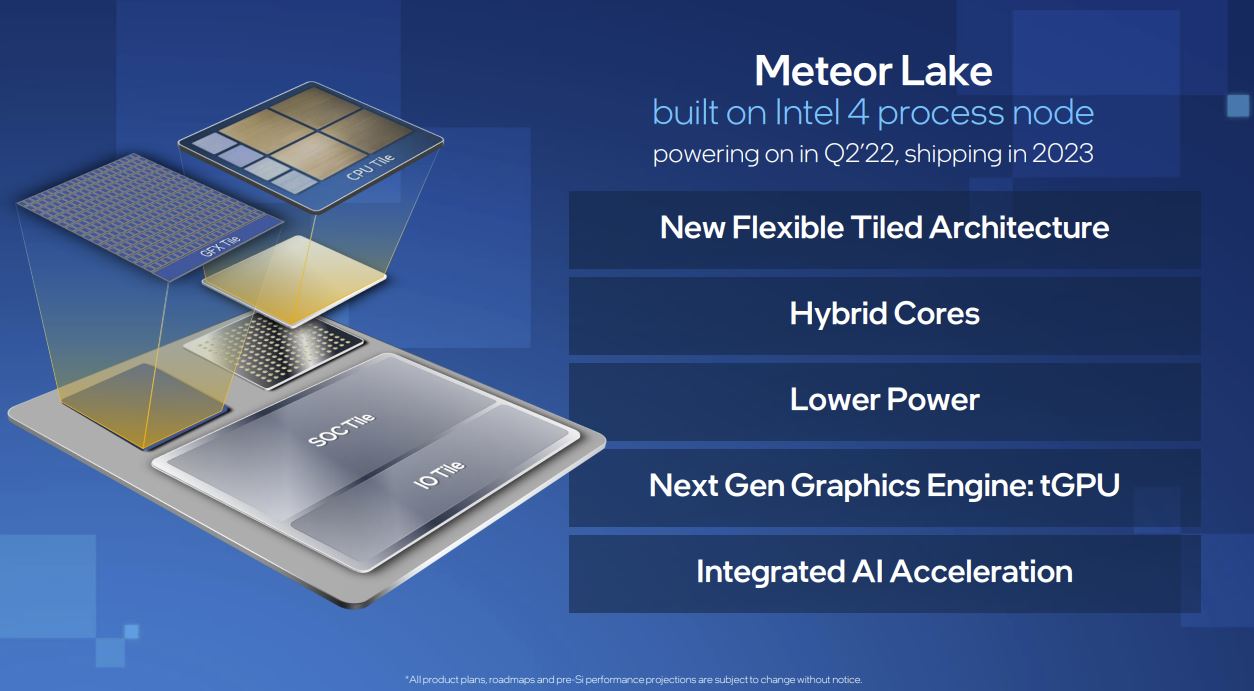Intel showcased its latest advancements in packaging technologies, including EMIB (embedded multi-die interconnect bridge) and Foveros. During the demonstration, Intel also unveiled their upcoming Meteor Lake processor, which features on-package LPDDR5X memory. This move seems to be inspired by Apple's strategy of incorporating LPDDR memory into its M1 and M2 packages.

The highlighted product from Intel is the quad-tile Meteor Lake CPU, which utilizes Foveros packaging for its chiplets and is equipped with 16GB of Samsung's LPDDR5X-7500 memory. While the specific configuration of the CPU remains unknown, it is worth mentioning that 16GB of memory can offer a peak bandwidth of 120 GB/s. This represents a significant increase compared to the peak bandwidth provided by a memory subsystem featuring DDR5-5200 or LPDDR5-6400.
The integration of memory directly onto the CPU package offers several advantages. Firstly, it enhances overall system performance. Secondly, it allows for a thinner and more compact system design, leading to a larger-capacity battery. However, there are drawbacks to this approach as well. If a memory chip fails, the entire system may fail, and the lack of upgradeability restricts future system improvements. Additionally, cooling both the CPU and memory necessitates a more advanced cooling system.
Notably, Apple pioneered the use of on-package LPDDR memory with client CPUs. However, Intel has been employing package-on-package DRAM with their Atom-branded CPUs for tablets and ultra-thin laptops for quite some time. More recently, Intel even incorporated in-package DRAM into their first hybrid CPU, Lakefield.
The real question lies in whether laptop manufacturers will embrace Intel's Meteor Lake with on-package LPDDR5X memory. While this manufacturing simplification enables thinner notebooks, it also limits configuration flexibility. Furthermore, it reduces the volume of memory that laptop manufacturers obtain directly from DRAM vendors like Samsung, potentially impacting their ability to negotiate DRAM pricing.







